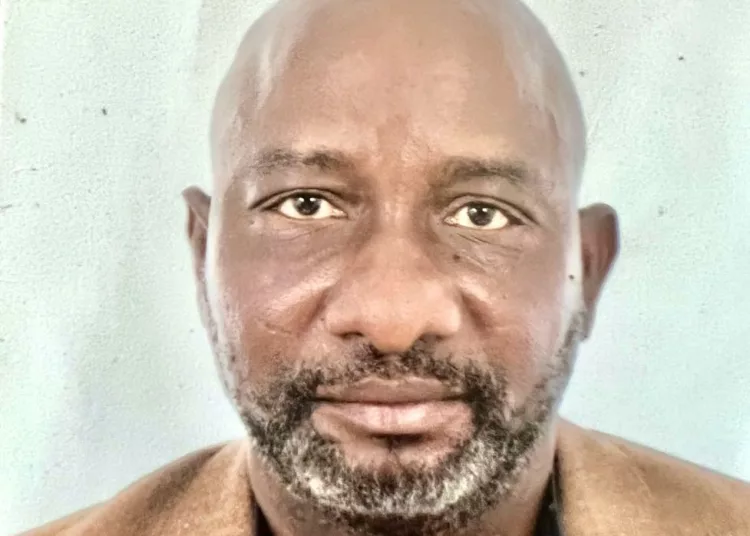On Sunday 3rd November 2023, the authorities of the NigeriaArmy (NA) undertook what it considered to be ‘a routine mission against terrorists…’ in the Tudun Biri village of Kaduna state, killing well over hundred people. However, instead of killing bandits, the operations killed over hundred civilians, largely women and children. This tragic incident has once again brought to the fore the challenges of prosecuting human rights-compliant military operations in theatre of asymmetric conflicts, where fighting often occurs in built-up towns and cities with high concentration of civilians. The incident also underlines the need for the Nigerian military authorities to put in place appropriate doctrinal guidelines and Standard Operating Procedures (SOP) that clearly outline the preventive risk assessment measures to be conducted before drones are deployed in a theatre of operation; the responsivemechanisms to address incidents of this nature and remedial measures to assuage the pains of the families of victims whenever collateral damages occur.
Over the last several years, northern Nigeria has witnessed the evolution of broadly two categories of Non-State Armed Groups (NSAG) terrorising the people in that region. In the northeastern (NE) Nigerian, the more internationally known terrorist group, the Boko Haram, has been responsible fordeaths of almost half a million people since it intensified its insurgency against the Nigerian State in 2009. The group has also displaced over three million people and has arrested the infrastructural development of NE Nigeria. In northwestern (NW) Nigeria, there has also emerged a collection of disparategroups engaging in various criminal activities including cattle-rustling, kidnapping for ransom, pillaging, armed robbery etc. This group has been loosely classified as bandits.
Whilst the raison d’etre for Boko Haram and banditryoperations may be different, their modus operandi doesintersect. Both groups are contemptuous of the laws of the land and other applicable rules of customary International Humanitarian Law (IHL) that would otherwise apply to their conducts. They have turned northern Nigeria into a huge theatre of asymmetric insurgency with potpourri of terroristtactics, including use of human and vehicle-borne improvised explosive devices, complex attacks on civilian facilities, use of indirect fire weapons, kidnapping of citizens for ransom, confronting the armed forces in built-up locations etc.Additionally, and from the law enforcement point of view, perhaps, the most challenging aspect of their reality is the difficulty of identifying who is a Boko Haram fighter or a bandit, since they do not have distinct uniforms that set themaside. They reside amongst the people, often as clandestine sleeper cells able to be triggered for operations at a hair’s breadth and many times within their own locations. The fact that they largely occupy the same spaces as civilians makes the application of the IHL principle of distinction and other precautionary measures extremely difficult to comply with.However, it is exactly for this same reason that the Nigeria military establishment must take extreme precaution to ensure that the Tudun Biri incident does not reoccur. Nothing oxygenates NSAG like Boko Haram than State Actors losing the ‘hearts and minds’ of the local populace.
The Use of Drones in Urban Combat.
When the news of the incident first broke, the initial assumption was that the Nigerian Airforce (NAF) was responsible for the operation, but the NAF promptly rebutted this. It is now known that the operation was undertaken by theNigerian Army (NA) with the use of Unmanned Aerial Vehicle (UAV) popularly known as drone. Whilst there arelegitimate human rights and ethical concerns over the use of the drones, there are those who argue that its use may in fact be a human rights tool to protect civilians, since the drone has the benefit of precision against its targets, thereby minimizingcollateral damages. It has also been argued that with the drone’s capability to preemptively strike against militants enroute to committing atrocities out of action, it ensures civilians who otherwise might have been endangered are spared such calamity. The drone, it is often argued, can serve as tools for Intelligence, Surveillance and Reconnaissance (ISR) and simultaneously for combat strikes. Indeed, over the years, the Americans have successfully deployed it in Somaliato tackle Al-Shabaab; the Ethiopian National Defence Force also effectively used the drones in its operations against the Tigray Peoples Liberation Forces (TPLF) and it is being used by both sides to the Ukraine war.
The advocates of the use of drones maintain that its usage provide critical benefits in the war against NSAG. First, the drone is a force protection tool since a military drone is effectively an aircraft without human being physically piloting it. Thus, drones could be operated by someone sitting in an Operation Centre hundreds of kilometers away from the target locations, with no need for any boots on the ground. This reduces force exposure to casualty.
Another advantage of the drone is its capacity to gather real-time intelligence, using its ISR capability to locate the position and movement of the members of NSAG. This is of critical importance given that Boko Haram and bandits tend to operate surreptitiously and inflict harms on civilians using the cover of night. The drones can provide situational awarenessto armed forces making it easier for actions to be taken against the terrorists. Doctrinally, regular armed forces would not deploy indirect fire in urban setting unless the location is an unpopulated area and there is no (or minimal) risk of collateral damage to civilians and there is High Payoff Target List in the area being targeted. However, the military drones are equipped with advanced guidance system and laser-guided munition which allows them to deliver accurate strikes with limited collateral damage.
Despite these claims, as the Tudun Biri operations has shown, the use of the drone could have devastatingly fatal consequences on innocent civilians. First, statistics obtainedfrom various theatres where the drones have been used over the last years have shown that civilian casualties as a result of use of drones has not necessarily reduced. According to a 2020 Council on Foreign Relation report seen by this writer, up to 13,000 civilians, of which 2300 were children, were killed by use of drones in Syria in 2019. Thus, there is noescaping the reality that the use of drones, especially in urban and populated part of rural areas, heighten the probability of harming civilians.
Suggestions Way Forward.
Despite the human rights concerns, it appears the use of the drone has come to stay as a modern day means of warfare. Even in theatres where there are boots on the ground, military authorities contemporaneously also deploy drones, and it is safe to presume the same will continue by the Nigeria military high command. For this reason, and to prevent reoccurrence of the Tudun Biri incident, the following measures are recommended to be put in place or strengthen if already in place.
The Nigerian military and security high command must put in place preventive measures like policy frameworks, capacity building, Rules of Engagement (RoE), Standard Operating Procedures (SOP), Commanders Directives etc, on the use ofthe drones that underline the importance of the militarycomplying with all applicable national and international laws to protect civilians. The drone as a weapon of confronting NSAG in Nigeria is a recent phenomenon and as such, protection of civilian imperative must be mainstreamed into the military Concept of Operations (CONOPs). Risk assessment should be undertaken before the used of the drone is authorised. The attack in Tudun Biri village occurred at night where hundreds of villagers gathered to celebrate a Maolud. A risk assessment before the operation might have suggested to the NA that such large gathering of apparently unarmed people, on foot and with no motorbikes visible, was unlikely to be a gathering of Boko Haram or bandits.
It is also critical for the army high command to put in place human-rights compliant investigative response mechanism topromptly investigate any officer or soldier whose deployment of drones are inconsistent with the relevant RoE, SOP orDirectives. Whilst cognizance must be taken of the difficultasymmetric nature of the operating theatre, the authority must also ensure that alleged violation of the national laws and other applicable rules of customary IHL are promptly and decisively addressed to deter others.
Finally, the military high command must put in place sufficiently robust remedial measures to protect, redress, andassuage the pains of civilians adversely affected by the military’s use of drones. By putting in place measures like third party compensation regime and ex –gratia payment for victims of its operations, the army authorities would have at least try to mitigate the reputational damages its actions may engender.
Conducting military operations in populated areas is invariably fraught with danger. The density and high concentration of people with their infrastructures, coupled with the itinerant nature of many northerners, means that the use of unmanned drones must be undertaken with extreme caution. The expectation of section 217 of the Constitution of Nigeria, 1999, is to have an armed forces committed tosecuring the country and protecting citizens from harms. In addition, combined reading of the relevant provisions of the Armed Forces Act (Cap A20) Laws of the Federation of Nigeria, 2004; the RoE and Code of Conduct for the Nigerian armed forces, all underline the obligation of the members of the armed forces to take all feasible precautions to protect civilians and civilian objects in the conduct of their operations, comply with IHL principles of use of minimum and proportional forces; principle of necessity and the need to distinguish between fighters and civilians in their deployment of drones.
Respecting the law of Nigeria and all applicable international law provisions is not only a human rights imperative, but also force enabler and multiplier.
Adebayo Kareem, an expert in international law, writes from Addis Ababa, Ethiopia.
Email: [email protected]k





